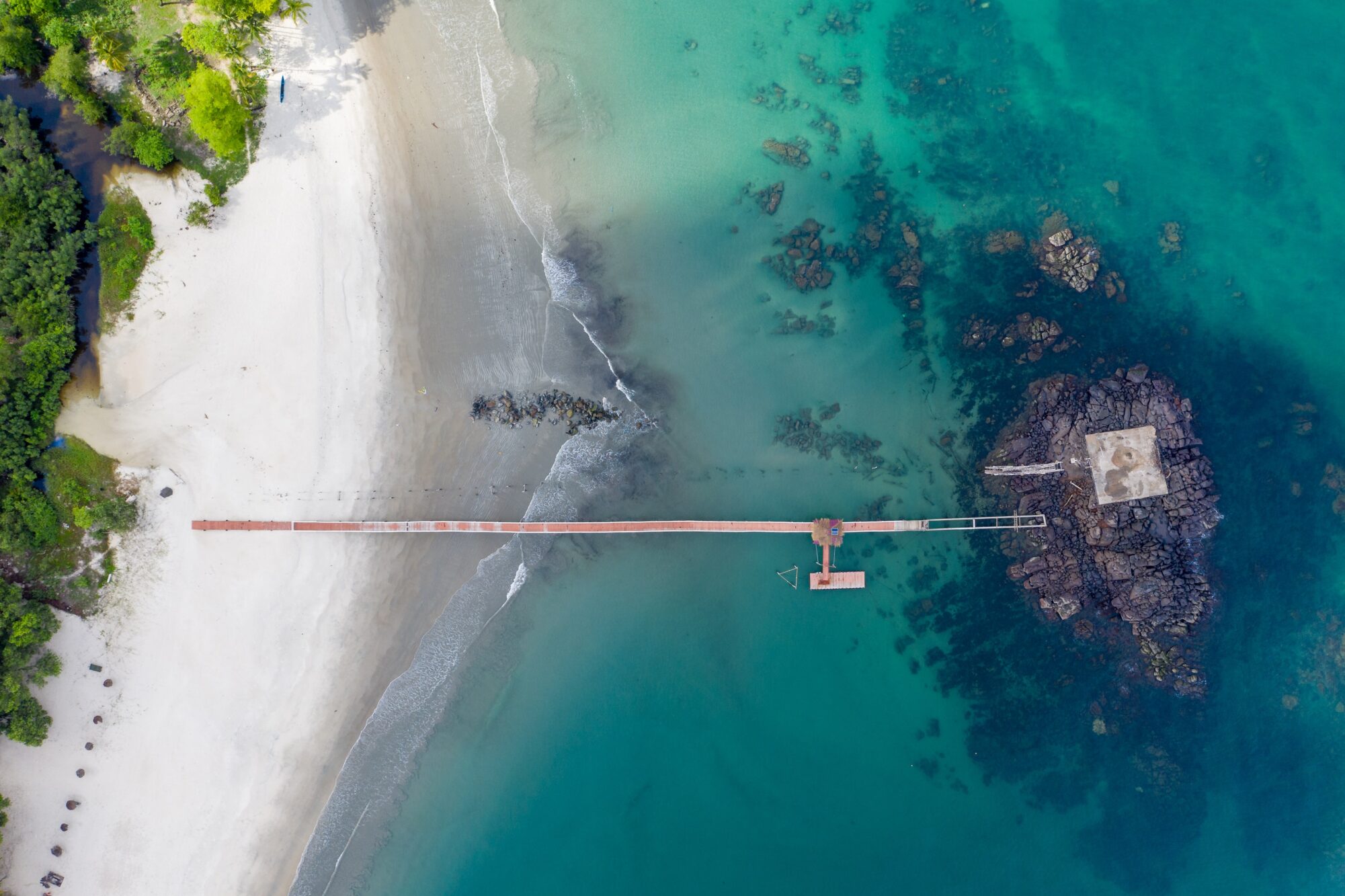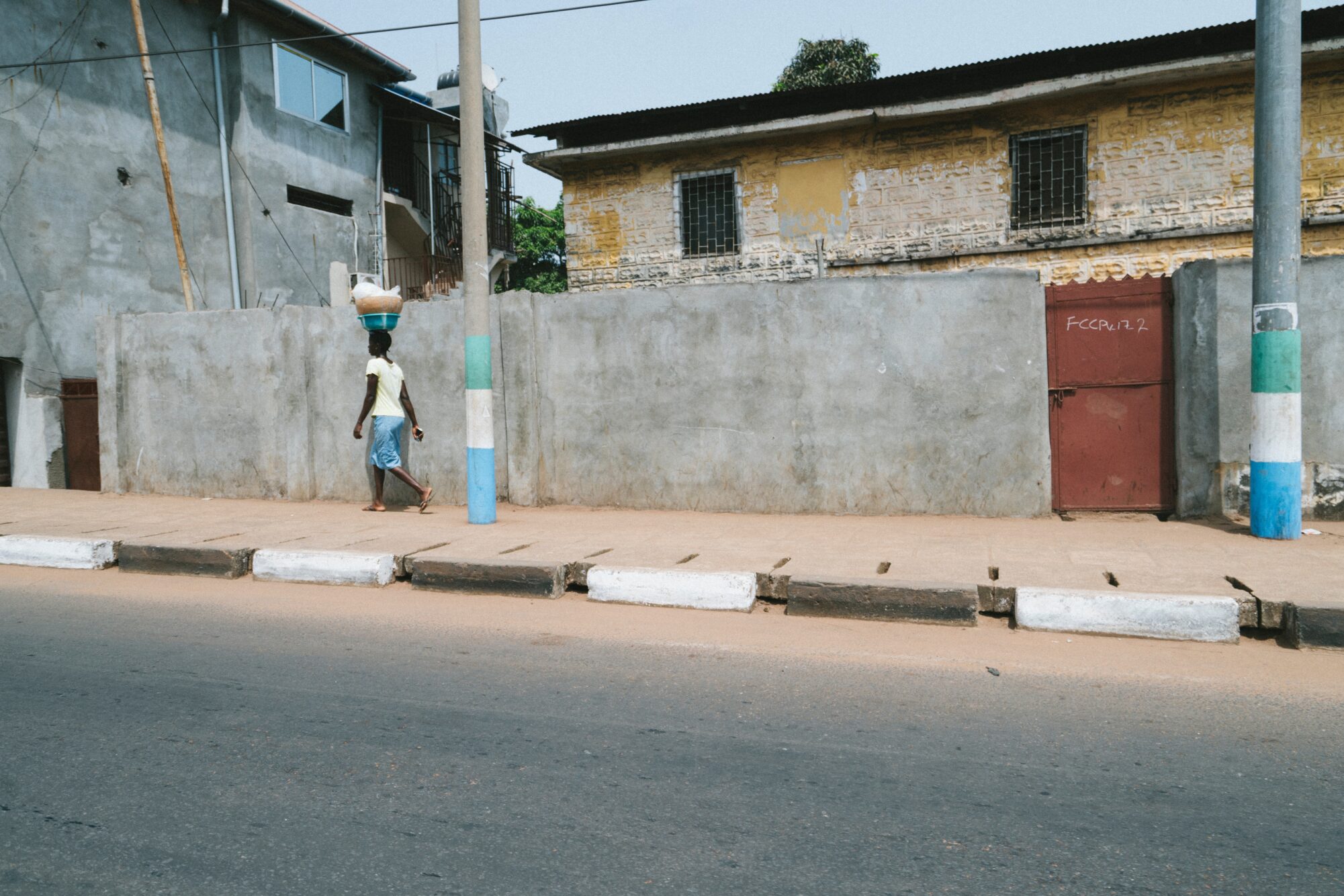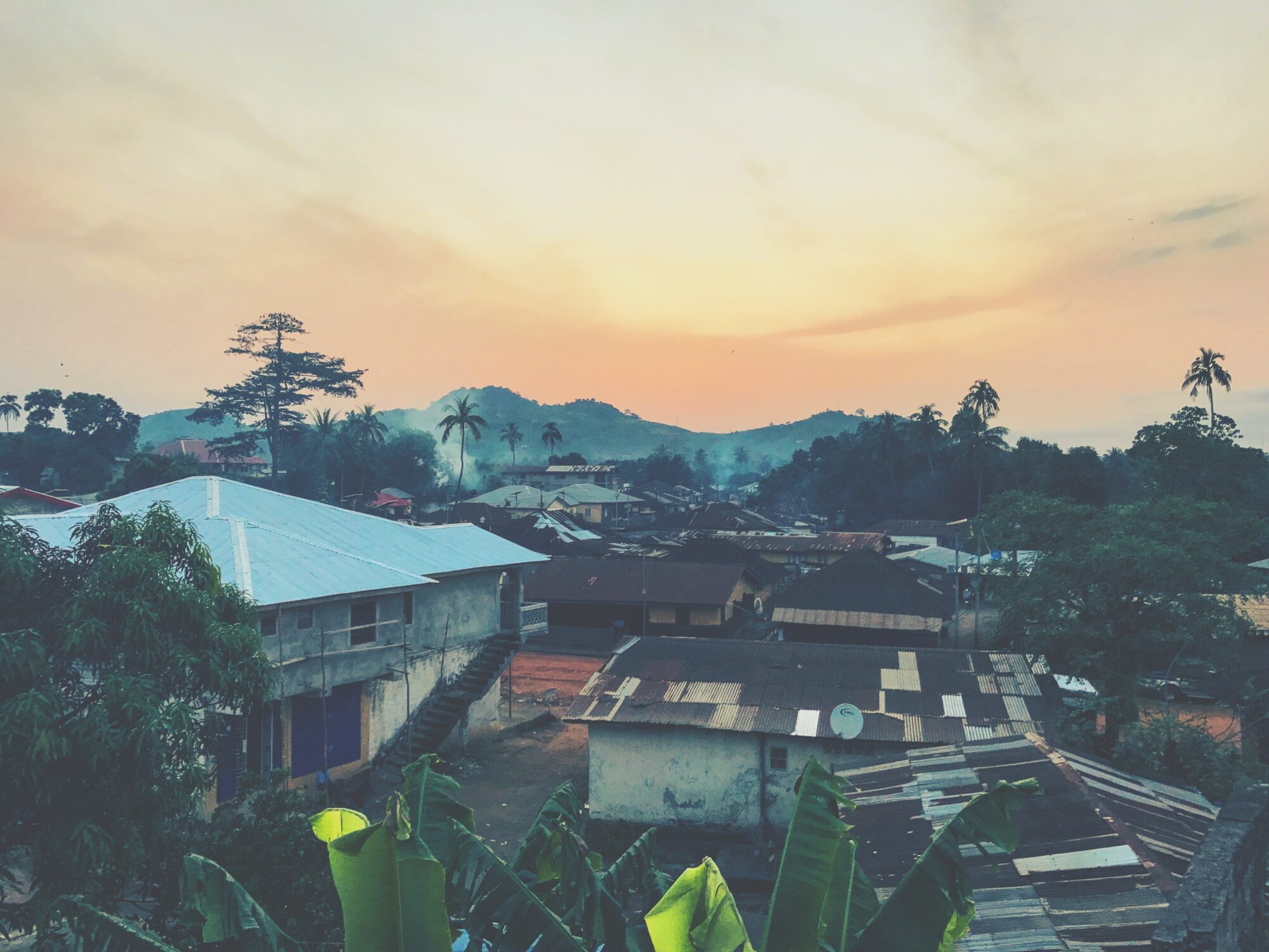Sierra Leone
Travel tips for Sierra Leone
Top 5 experiences
With palm-fringed beaches, breath taking mountains, tropical rainforests and a vibrant culture, Sierra Leone is one of West Africa’s most exciting destinations. Highlights of the country include:
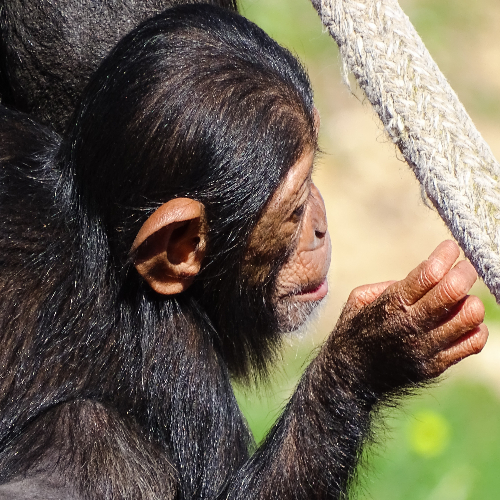
Wildlife & Chimpanzees
There are several wildlife viewing opportunities in the country – Including chimpanzees, hippos and numerous bird species. The well-known Tacugama Chimpanzee Sanctuary project is located in the dense rainforest of the Western Area National Park and is home to primates, dianama cats and rare pygmy hippos.

National Parks
Whether rainforest, lake plateau or mountainous landscape, there are many national parks and wildlife sanctuaries to explore. These include the Outamba-Kilimi National Park, the Gola National Park, the Loma Mountains and the Tiwai Wildlife Sanctuary, where the country’s greatest biodiversity can be found.
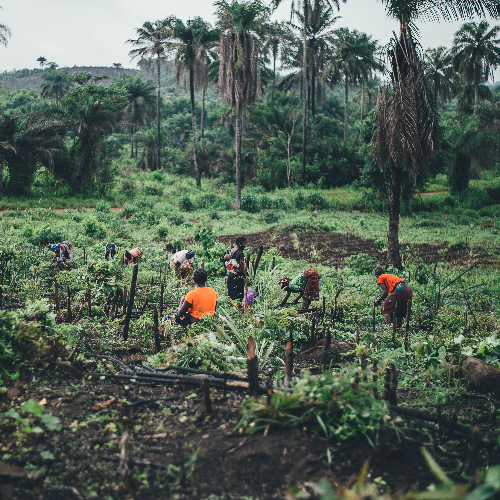
Active tours
In addition to a beautiful coastline, there are many opportunities for hiking. These range from „easy to manage“ to „challenging“. Recommended are Mount Bintumani in the Loma Mountains, with its 1945 m the highest elevation in West Africa, the Wara Wara Mountains in the Koinadugu District and Picket Hill in the Western Area Peninsula Forest National Park.
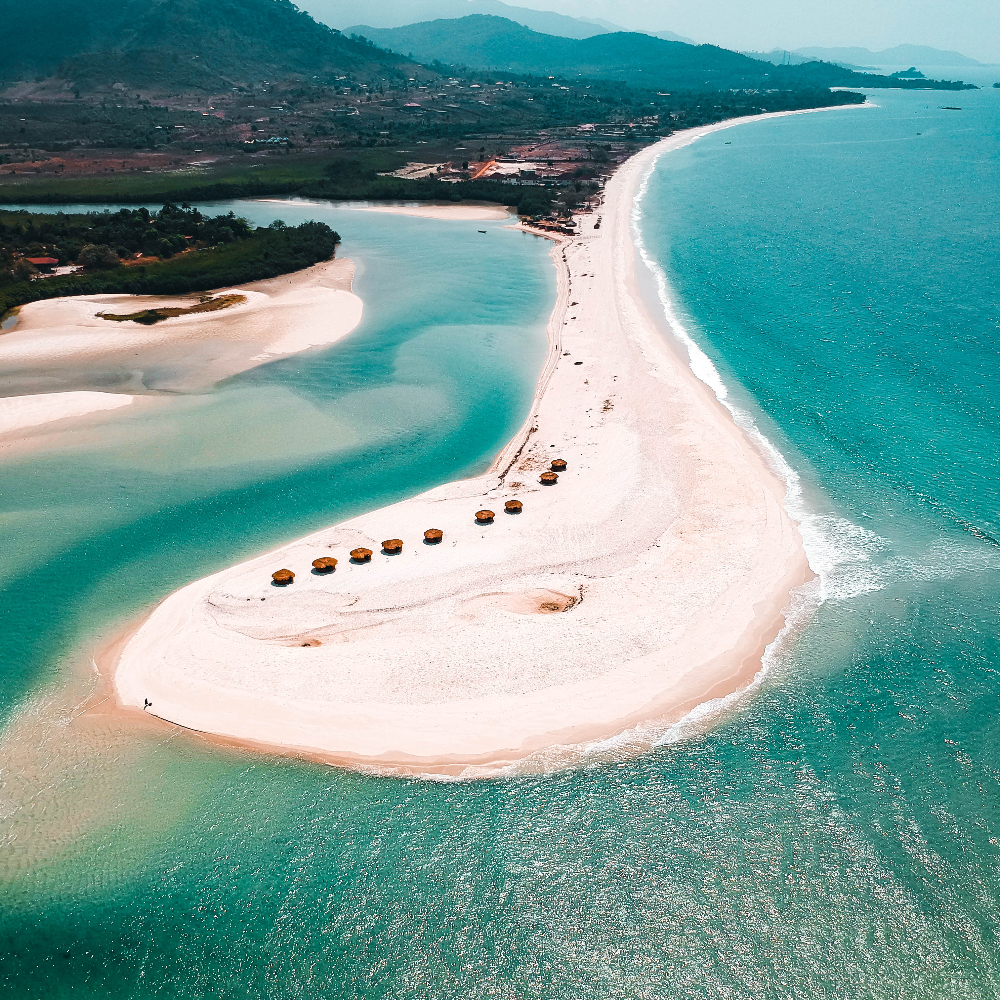
Beaches
Sand as white as powdered sugar, crystal clear water and natural islands – this is the untouched coast of Sierra Leone. Away from mass tourism, the beaches invite to surf and sunbathe. Especially Lumley Beach, Sussex Beach, River Number Two Beach, Tokeh Beach and Bureh Beach are worth a visit. If one has enough of the mainland, a stop at Banana or Turtle Island is suggested.
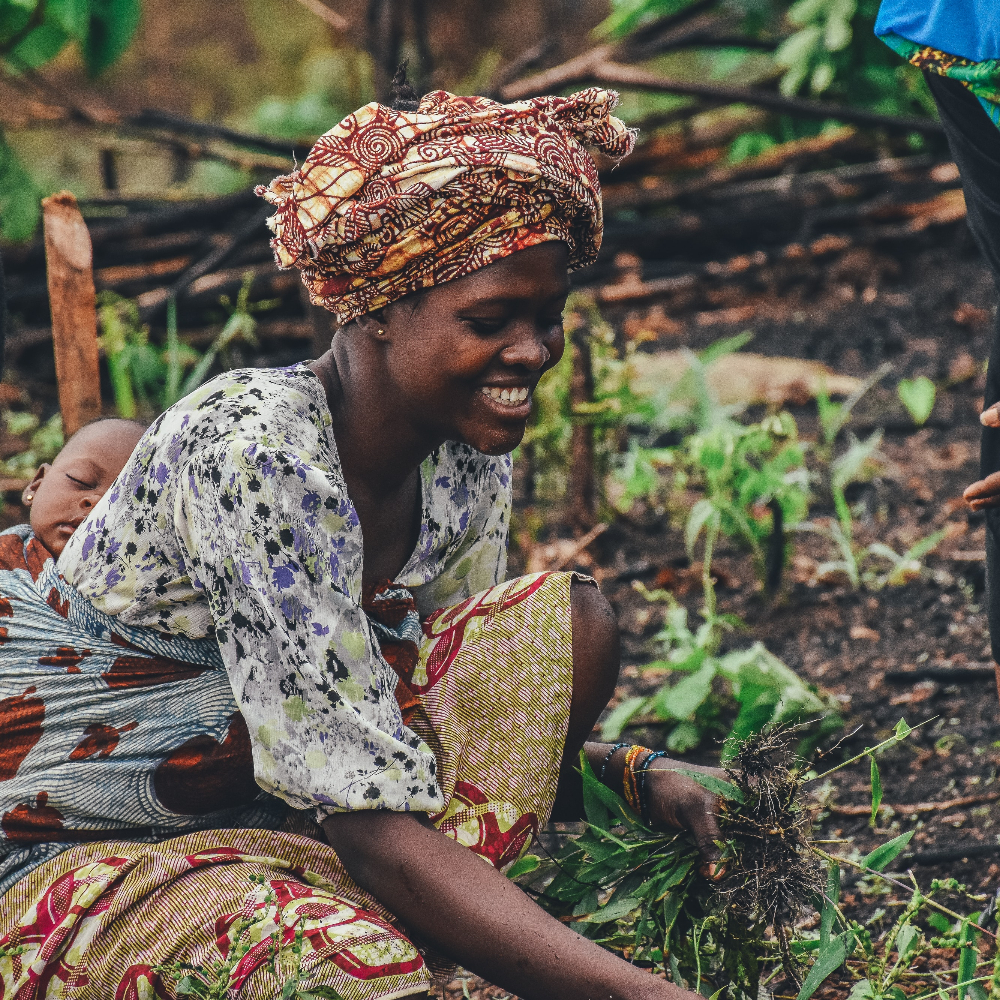
Cultural Heritage
The Tiwai Heritage Trail in the Tiwai Island Wildlife Sanctuary is a great way to immerse in the country’s cultural and historical heritage. In eight communities, including Mapuma, Boma, Giema and Segbewema, one gets an insight into authentic village life and the daily routine of the inhabitants.
Tourist infrastructure
Sierra Leone has an extensive air network, with the capital Freetown being the starting and ending point of all international connections. Within the country, there are sufficient domestic flights to the provinces. The country’s remaining tourist infrastructure is still under construction. Road conditions can vary depending on the region, but are generally rather difficult to drive on. There are some paved roads in and around Freetown, but uneven and rocky roads are the standard in the rest of the country.
There is a basic portfolio of accommodations, which will be expanded in the future. In particular in the tourist regions around Freetown and along the coast, accommodation in various categories is available.
Climate and travel season
With a tropical humid climate, especially along the coast, Sierra Leone is one of the wettest regions in West Africa. The climate can be divided into two seasons: a rainy season from mid-May to mid-November and a dry season from December to April. The months of December and January are characterized by a strong wind from the Sahara, which brings cool air and lots of sand. This is followed by the hottest months with the least rainfall in February, March and April.
In the north of the country, the average temperature is about 25.5 °C, in the south between 20 – 37 °C, and on the coastline and in Freetown it settles between 23 – 32 °C. Especially in the rainy season it is very humid due to the high humidity of 90%. In general, the coastal climate around Freetown is somewhat milder and more pleasant than the inland.
The best time to travel is between the rainy and dry season, i.e. between mid-November and mid-December. During this time, the landscape is very green and the dusty Sahara wind does not yet blow across the country.
Visa and entry
German, Austrian and Swiss citizens need a passport valid for at least six months at the time of entry as well as a visa, which must be applied for in advance at the responsible authorities in the respective country.
Since the regulations can change at any time, all information are non-binding and without guarantee. Please observe the visa regulations and the current information of the Federal Foreign Office / Federal Ministry European and International Affairs / Federal Department of Foreign Affaires at all times.
Impressions from Sierra Leone
(Click to enlarge)
Stories
International Hotel Chains Are Driving the Hotel Boom in Africa
Frankfurt, 03 April 2024 - The "Big 5" of global hotel chains - Accor, Hilton, IHG, Marriott International and Radisson ...
Internationale Hotelketten treiben den Hotelboom in Afrika voran
ReThinking Africa Initiative setzt sich für Investitionen in Afrikas Tourismuswirtschaft ein Frankfurt, 03. April 2024. Die „Big 5“ der globalen Hotelketten ...
Voice4Africa x ReThinking Africa News March
KLEBER Group x ReThinking Africa News March 2024 Content Foreword Investment in Africa's tourism industry as a driver for sustainable ...
Our partners for Sierra Leone
Visa, Entry, and Updates
Current accessibility
Corona Precautionary Measures
Status: 05.10.2021








